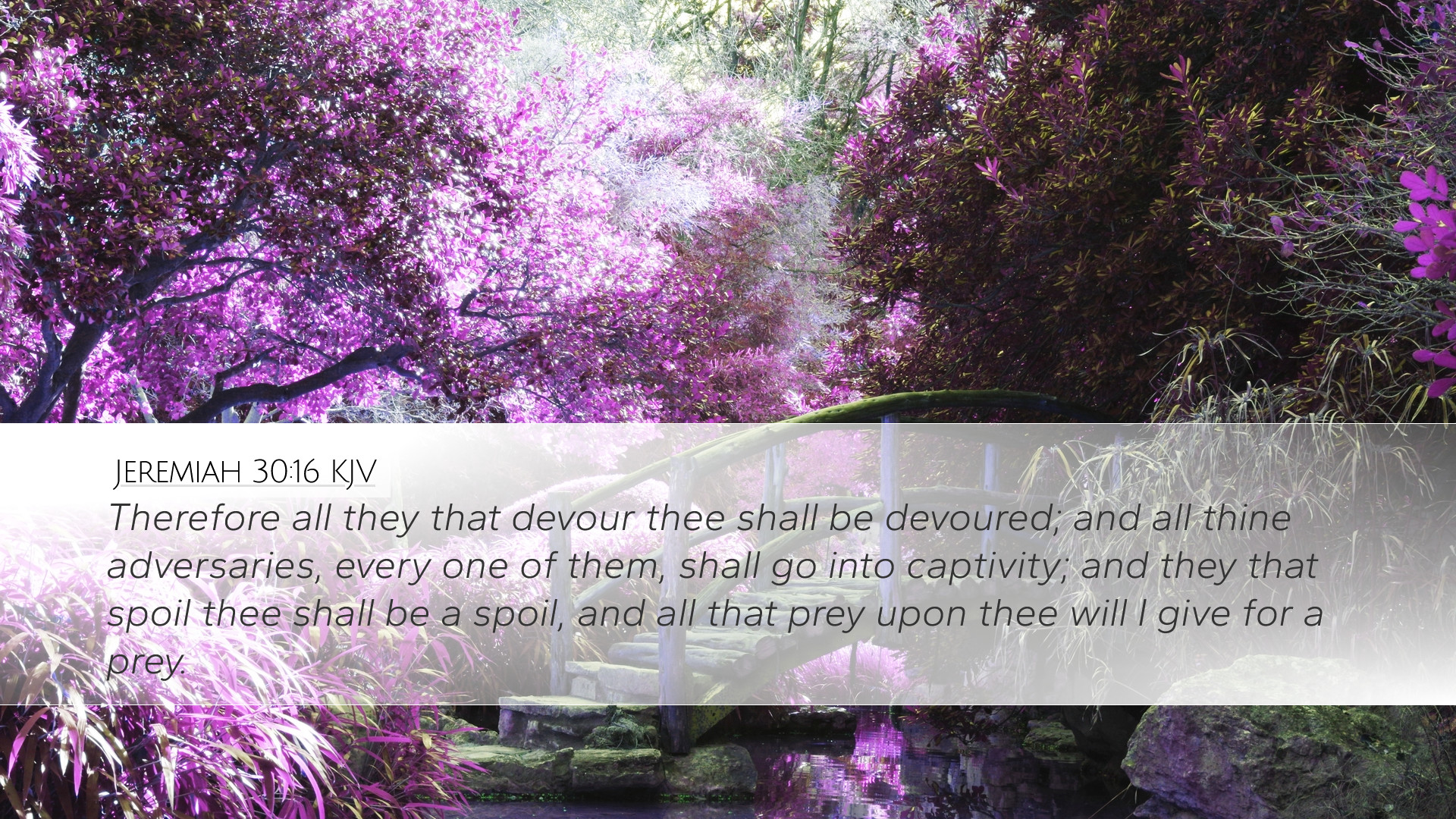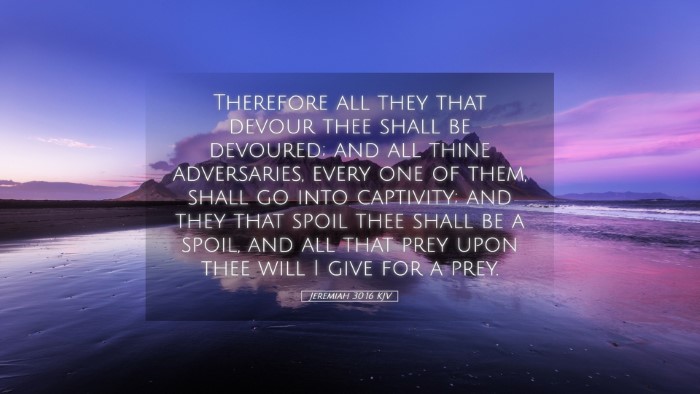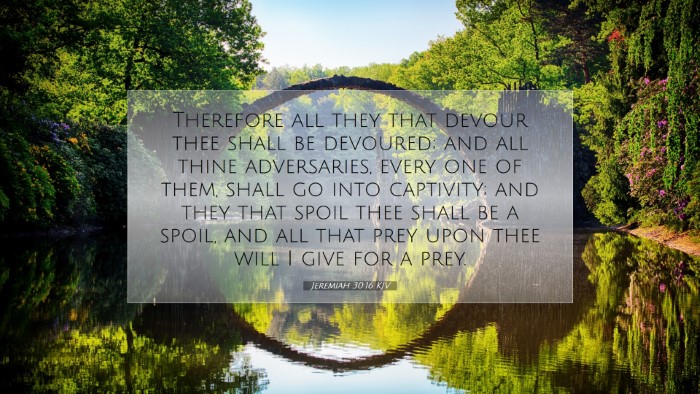Commentary on Jeremiah 30:16
Jeremiah 30:16 states, "Therefore all they that devour thee shall be devoured; and all thine adversaries, every one of them, shall go into captivity; and they that spoil thee shall be a spoil, and all that prey upon thee will I give for a prey."
This verse comes as a part of God's message of comfort and restoration to His people during a time of great distress and oppression.
Context and Background
The book of Jeremiah captures the prophetic ministry of Jeremiah, warning the people of Judah about impending judgment due to their sins, but it also contains significant promises of hope and restoration.
Chapter 30 marks a shift where God reassures Israel of His love and commitment despite their sufferings.
Commentary Insights
Matthew Henry's Commentary
Matthew Henry emphasizes that this passage exhibits God’s justice.
He asserts: "Though the people of God may suffer, those who attack them shall ultimately face repercussions for their deeds."
Henry further explains that the surrounding nations and oppressors will be held accountable for their actions against God's chosen.
Albert Barnes' Notes
Albert Barnes discusses the themes of judgment and restoration in this text:
- Restoration of the Oppressed: God's promise to restore and vindicate His people is central to understanding this verse. Barnes notes that God will not only defend His people but also turn the tide against those who have wronged them.
- Divine Justice: Barnes remarks on the divine principle of retribution embedded in this verse, suggesting that God's justice ensures that oppressors will receive their due punishment as a consequence of their actions.
- Encouragement to the Faithful: The faithful are reminded that their struggles are noticed by God, providing hope amid despair.
Adam Clarke’s Commentary
Adam Clarke delves into the implications of captivity and spoiling mentioned in the verse:
- Captivity: Clarke interprets captivity as a metaphor for both spiritual and physical subjugation. He posits that the promise of liberation is not only about the removal from physical captivity but also from spiritual bondage.
- The Spoilers Spoiled: Clarke emphasizes the reversal of fortune—those who have plundered and oppressed will themselves be plundered, serving as a powerful illustration of God's restorative justice.
- Pastoral Application: Clarke encourages present-day believers to find solace in God’s faithfulness, assuring them that they are not forsaken even in their trials.
Theological Reflections
From the insights of these commentaries, several theological reflections emerge:
- The Nature of God's Justice: This verse portrays God as a just ruler who defends the rights of the oppressed and punishes wrongdoers, highlighting a key aspect of His character.
- Human Suffering and Divine Restoration: There is a profound relationship between suffering and subsequent vindication, suggesting that present trials can lead to future redemption.
- The Hope of the Remnant: The promise of restoration serves as a deep encouragement to the remnant who remain faithful, illustrating God’s ongoing covenantal relationship with His people.
Application for Pastors and Theologians
For pastors, the implications of Jeremiah 30:16 can be applied in a pastoral context by providing assurance to congregants facing adversity:
- Preaching Hope: Pastors can emphasize the hope found in God's promises, assuring their communities of God’s deliverance.
- Encouragement amidst Difficulty: This verse can serve as a source of comfort for the oppressed within the congregation, reminding them of God’s active involvement in their lives.
- Justice in Society: The theme of divine justice can lead to discussions on social justice, encouraging the church to advocate for those who are marginalized and wronged.
Conclusion
Jeremiah 30:16 stands as a powerful proclamation of God's justice and deliverance.
The insights from Matthew Henry, Albert Barnes, and Adam Clarke highlight the complexities of suffering and the assurance of God's faithfulness to His people.
As Christians reflect on this passage, they are encouraged to stand firm in their faith, assured that God's justice will ultimately prevail.


